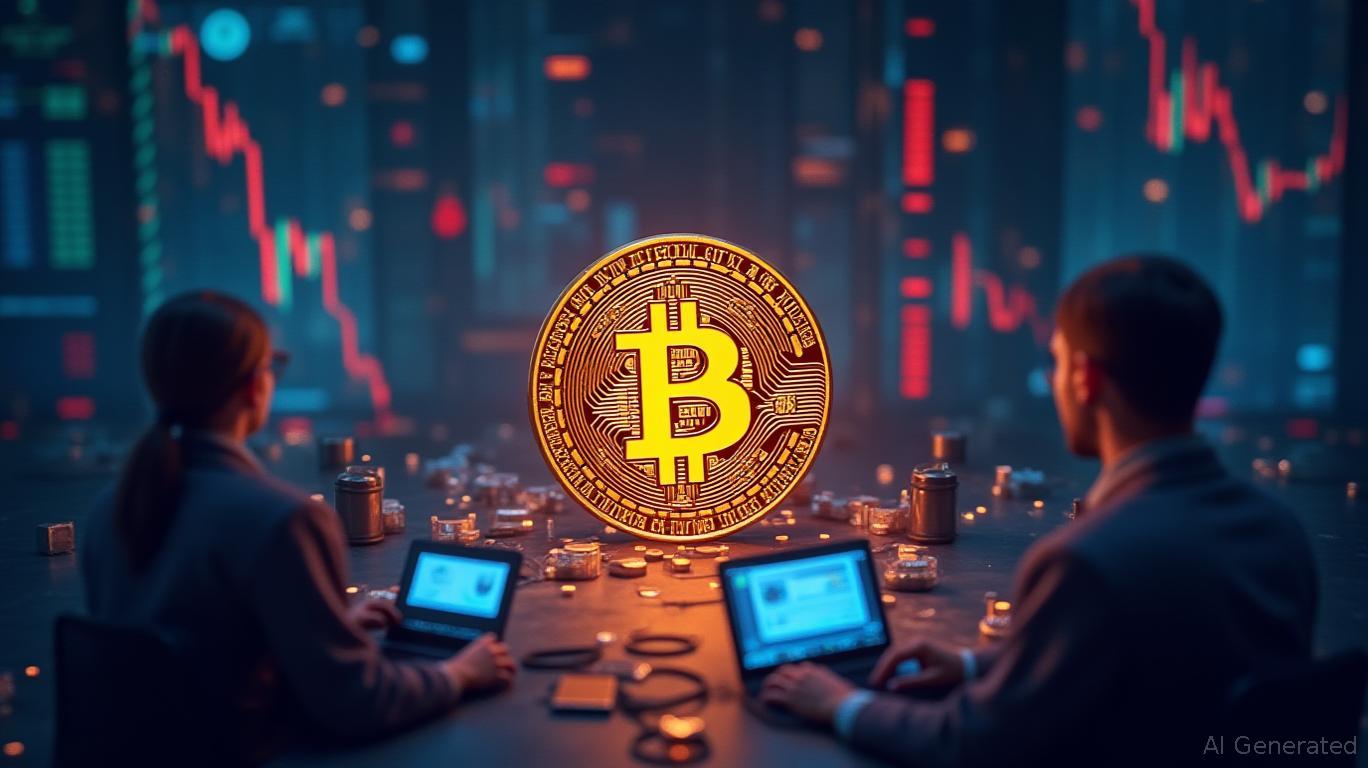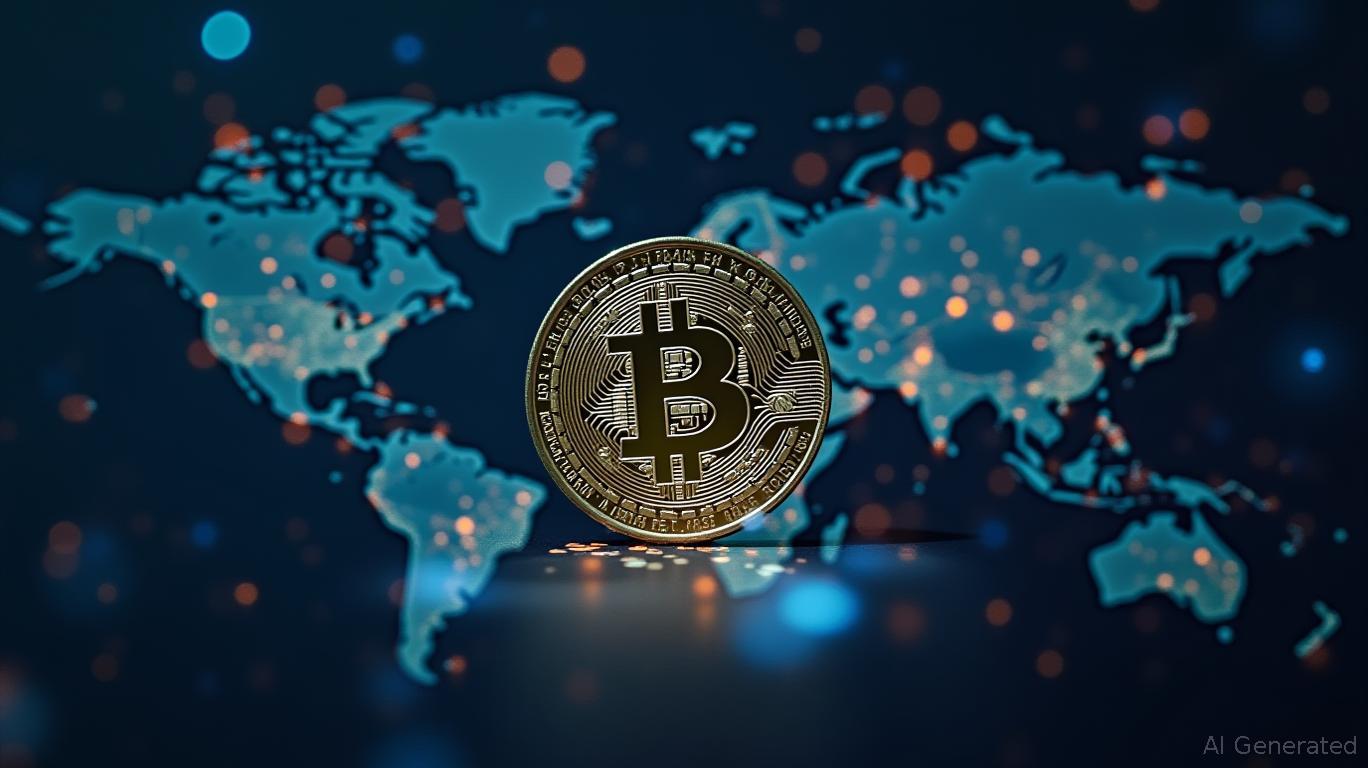DEXs Compete with CEXs as DeFi Trading Volume Reaches $613 Billion in October 2025
- DEXs hit $613.3B in October 2025 volume, up 22.7% from September, driven by liquidity mining and airdrops. - Uniswap led with $170.9B (60.4% rise), while CEXs hit $2.17T, led by Binance's $810.4B. - DeFi growth coincided with crypto volatility; Bitcoin's drop spurred trading as investors repositioned. - Risks include regulatory scrutiny and competition, but DEXs' 19.84% market share highlights growing preference. - Market resilience suggests continued interest in decentralized finance as projects refine
Data from DefiLlama shows that decentralized exchanges (DEXs) saw trading volumes soar to a record $613.3 billion in October 2025, representing a 22.7% rise from September’s $500 billion. This growth, fueled by incentives like liquidity mining and airdrop events, points to increasing interest in transparent, self-custodial crypto trading.

The surge in decentralized finance (DeFi) activity coincided with heightened volatility across the crypto market. On October 10, Bitcoin’s price plunged from $121,500 to $104,600, prompting a wave of trading as investors adjusted their holdings. Kronos Research CIO Vincent Liu observed that traders are increasingly attracted to DEXs for their “liquidity mining and airdrop-driven engagement,” indicating a move toward on-chain participation, the TradingView report noted.
Centralized exchanges (CEXs) also performed strongly, with total trading volume in October reaching $2.17 trillion, up 28% from September. Binance continued to lead with $810.4 billion, while Gate and Bybit posted $175.6 billion and $156.9 billion, respectively. The ratio of DEX to CEX volume rose to 19.84% from 18.83% in September, highlighting a growing shift toward decentralized trading, according to TradingView.
The uptick in DEX usage mirrors broader advances in fintech. For example, SoFi Technologies is making a return to crypto through blockchain-based international transfers and a new ETF focused on AI, according to
T. Rowe Price Group, a traditional asset manager, reported $1.77 trillion in assets under management for the third quarter of 2025, signaling investor trust in diversified offerings, per
Despite the positive momentum, challenges remain. Regulatory oversight, competition from established interoperability providers like
For now, the crypto sector’s resilience—evidenced by the October volume spike—demonstrates sustained enthusiasm for decentralized alternatives to conventional finance. As Mono Protocol and platforms like Uniswap enhance their features, the evolving relationship between DeFi and fintech may reshape the global financial landscape.
Disclaimer: The content of this article solely reflects the author's opinion and does not represent the platform in any capacity. This article is not intended to serve as a reference for making investment decisions.
You may also like
Hyperliquid News Today: Buzz and Speculation Drive BSC Meme Coin Rally, GIGGLE Approaches $90 Million
- GIGGLE, a BSC meme coin, surged 22% to $87.21M market cap, sparking broader BSC meme token rallies. - "Binance Life" and "Hakimi" saw 20-15% spikes, driven by speculative demand and community hype per Lookonchain. - BSC's low fees and Binance's ecosystem support create fertile ground for meme coins, noted blockchain researchers. - Experts caution BSC meme coins remain highly volatile, with risks from social media sentiment and unclear regulations.

Crypto Fraud Rises While International Authorities Strain to Catch Up
- Singapore and Malaysia intensify cross-border crackdowns on crypto scams, seizing $150M assets linked to Cambodian syndicates and pursuing regional fugitives. - ZachXBT ranks Nigeria, India, Canada, UK, and Russia as top jurisdictions for crypto fraud recovery challenges due to legal delays and frozen assets. - Meta deploys AI tools to combat WhatsApp/Messenger scams, aligning with Singapore's facial recognition mandates under the Online Criminal Harms Act. - Global fraud surges include $500M telecom loa

Treasury Targets International Network Supporting North Korea's Nuclear Program
- U.S. Treasury sanctions 8 North Korean bankers and 2 firms for laundering $5.3M in crypto to fund nuclear programs, targeting First Credit Bank and Ryujong Credit Bank. - Report reveals North Korea's cybercrime schemes siphoned $3B in digital assets over three years via global shell companies and financial networks in China/Russia. - U.S. seeks UN sanctions on 7 ships illegally exporting $200M-$400M/year in coal/iron to China, but faces Russian/Chinese opposition to stricter measures. - Secondary sanctio
